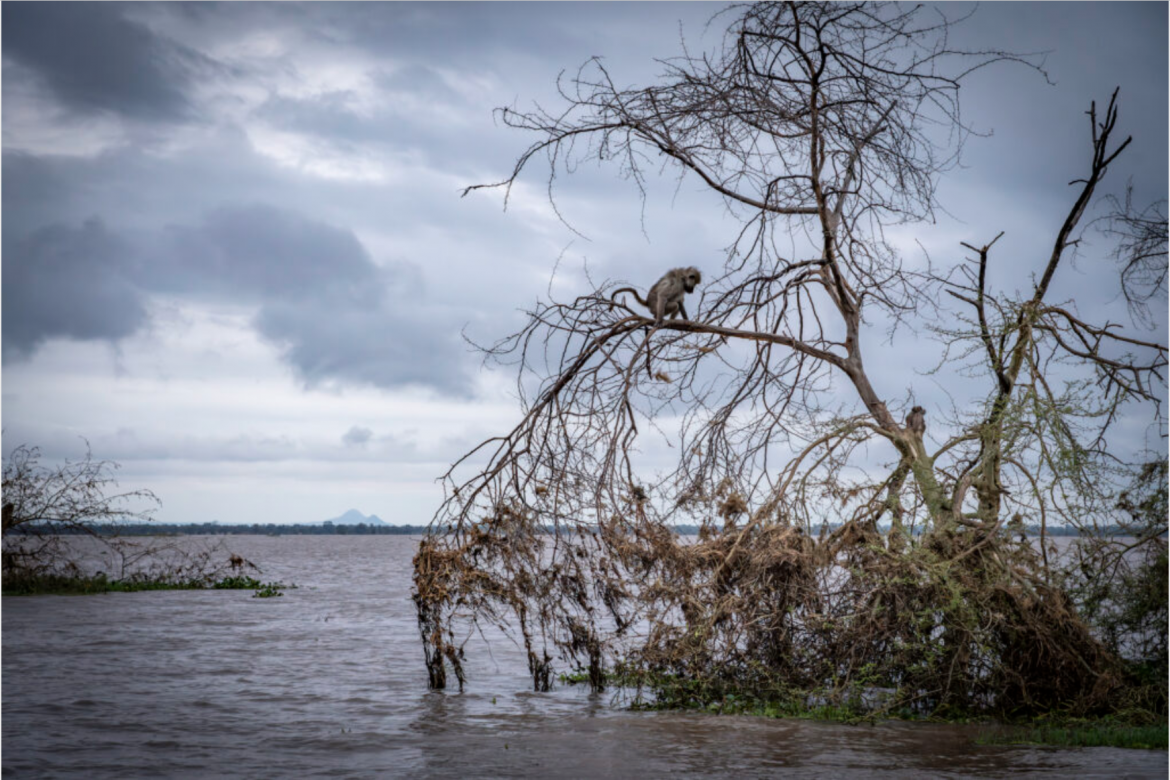
A baboon still stranded in a tree on the Gorongosa National Park floodplain almost a month after the cyclone. Photo credit: Dr. Jen Guyton, www.jenguyton.com
UBC News, November 22, 2023 - The bigger you are, the better you fare when climate change causes cyclones
Abstract
Extreme weather events perturb ecosystems and increasingly threaten biodiversity1. Ecologists emphasize the need to forecast and mitigate the impacts of these events, which requires knowledge of how risk is distributed among species and environments. However, the scale and unpredictability of extreme events complicate risk assessment1,2,3,4—especially for large animals (megafauna), which are ecologically important and disproportionately threatened but are wide-ranging and difficult to monitor5. Traits such as body size, dispersal ability and habitat affiliation are hypothesized to determine the vulnerability of animals to natural hazards1,6,7. Yet it has rarely been possible to test these hypotheses or, more generally, to link the short-term and long-term ecological effects of weather-related disturbance8,9. Here we show how large herbivores and carnivores in Mozambique responded to Intense Tropical Cyclone Idai, the deadliest storm on record in Africa, across scales ranging from individual decisions in the hours after landfall to changes in community composition nearly 2 years later. Animals responded behaviourally to rising floodwaters by moving upslope and shifting their diets. Body size and habitat association independently predicted population-level impacts: five of the smallest and most lowland-affiliated herbivore species declined by an average of 28% in the 20 months after landfall, while four of the largest and most upland-affiliated species increased by an average of 26%. We attribute the sensitivity of small-bodied species to their limited mobility and physiological constraints, which restricted their ability to avoid the flood and endure subsequent reductions in the quantity and quality of food. Our results identify general traits that govern animal responses to severe weather, which may help to inform wildlife conservation in a volatile climate.